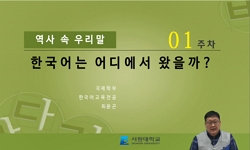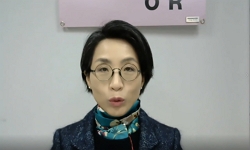This paper is an experimental study to explore research methods on the history of the Korean lexicon in connection with research on the history of concepts. Traditionally, the history of the Korean language is the study of the history of the phoneme, ...
http://chineseinput.net/에서 pinyin(병음)방식으로 중국어를 변환할 수 있습니다.
변환된 중국어를 복사하여 사용하시면 됩니다.
- 中文 을 입력하시려면 zhongwen을 입력하시고 space를누르시면됩니다.
- 北京 을 입력하시려면 beijing을 입력하시고 space를 누르시면 됩니다.

개념사 연구와 연계한 국어 어휘사 연구 방법 = Korean Lexicon History Research Method Linked to Conceptual History Research
한글로보기부가정보
다국어 초록 (Multilingual Abstract)
Traditionally, the history of the Korean language is the study of the history of the phoneme, lexical, and grammar of the Korean language, while the history of concepts is known as an academic field that studies the formation and change process of historically important concepts at the level of historical linguistics. The relationship between Korean language history and conceptual history has certain differences not only in the vocabulary or concept to be studied, but also in the perspective from which the research object is viewed. From the perspective of Korean language history, the focus is on exploring the principles of linguistic change inherent in the history of vocabulary or words, while from the perspective of conceptual history, attention is paid to the formation and change of vocabulary concepts with historical meaning.
In this paper, we examine how the study of lexical history, word history, and etymology corresponding to the history of language and the study of conceptual history can be connected from the perspective of modern linguistics, and solve the problem of ‘multilayeredness’ as a method of understanding the structure of concepts. As a way to do this, we wanted to propose ‘historical sociolinguistic research’. This methodology refers to a method of studying the meaning of vocabulary, the process of conceptual differentiation, and the emergence of new conceptual words in relation to historical and social factors. Since the translation of new modern academic languages and the principles of new character creation are not only a field of Korean language history in themselves, but are also closely related to conceptual history, it is expected that research linked to conceptual history will make a certain contribution to the development of Korean language history.
This paper is an experimental study to explore research methods on the history of the Korean lexicon in connection with research on the history of concepts.
Traditionally, the history of the Korean language is the study of the history of the phoneme, lexical, and grammar of the Korean language, while the history of concepts is known as an academic field that studies the formation and change process of historically important concepts at the level of historical linguistics. The relationship between Korean language history and conceptual history has certain differences not only in the vocabulary or concept to be studied, but also in the perspective from which the research object is viewed. From the perspective of Korean language history, the focus is on exploring the principles of linguistic change inherent in the history of vocabulary or words, while from the perspective of conceptual history, attention is paid to the formation and change of vocabulary concepts with historical meaning.
In this paper, we examine how the study of lexical history, word history, and etymology corresponding to the history of language and the study of conceptual history can be connected from the perspective of modern linguistics, and solve the problem of ‘multilayeredness’ as a method of understanding the structure of concepts. As a way to do this, we wanted to propose ‘historical sociolinguistic research’. This methodology refers to a method of studying the meaning of vocabulary, the process of conceptual differentiation, and the emergence of new conceptual words in relation to historical and social factors. Since the translation of new modern academic languages and the principles of new character creation are not only a field of Korean language history in themselves, but are also closely related to conceptual history, it is expected that research linked to conceptual history will make a certain contribution to the development of Korean language history.
동일학술지(권/호) 다른 논문
-
- 국어사학회
- 박철민
- 2024
- KCI등재
-
- 국어사학회
- 서엽
- 2024
- KCI등재
-
20세기 초등 세계 지리 교과서 『초학디지』의 서지적 고찰
- 국어사학회
- 선한빛
- 2024
- KCI등재
-
- 국어사학회
- 박형우
- 2024
- KCI등재




 eArticle
eArticle




